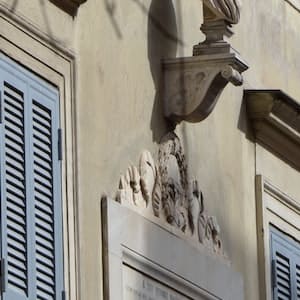fiddle while Rome burns: Idiom Meaning and Origin
What does ‘fiddle while Rome burns’ mean?
The idiom "fiddle while Rome burns" means to engage in trivial or pointless activities while a serious situation or crisis is happening.

Idiom Explorer
The idiom "play with fire" means to engage in a dangerous or risky activity, often knowing the potential consequences but still proceeding anyway.
The idiom "keep the pot boiling" means to maintain a situation or activity at a satisfactory or acceptable level of progress, especially in order to avoid any interruptions or setbacks.
The idiom "irons in the fire" means having multiple projects or tasks in progress or pursuing multiple opportunities at the same time. It suggests being busy with various things and being proactive in pursuing new prospects or ventures.
The idiom "horse around" means to engage in playful, often rowdy or foolish behavior. It is used to describe someone who is not taking a situation seriously or wasting time by being silly or disruptive.
The idiom "have other fish to fry" means to have other more important or interesting things to do or be concerned with.
The idiom "hang up one's fiddle" means to retire or give up something that one has been doing for a long time, especially a skill or talent.
The idiom "go round in circles" means to keep doing or discussing the same thing without making any progress or reaching a resolution.
The idiom "go nowhere fast" means to make no progress or achieve no results despite putting in a lot of effort or time.
The idiom "go down in flames" means to suffer a significant and public failure or defeat. It is often used to describe a situation where all efforts or plans end in disaster or are unsuccessful.
The idiom "fudge the issue" means to avoid giving a clear or direct answer to a question or problem, often by providing vague or evasive responses.
Foolish Distraction
The idiom "fiddle while Rome burns" has a figurative meaning that can be traced back to ancient Rome. It originated from the historical event of the Great Fire of Rome in AD 64, where Emperor Nero supposedly played the fiddle or lyre while his city burned. This act of indifference sparked outrage and criticism, and the idiom is now commonly used to criticize those who show negligence or indifference in the face of a crisis.
One aspect of this idiom is that it implies a sense of irresponsibility or disregard for important matters. It depicts individuals who engage in trivial or irrelevant activities while something of grave importance is occurring. The image of fiddling while a city burns serves as a powerful metaphor for such behavior.
Another noteworthy fact is that the idiom "fiddle while Rome burns" has become a widely used expression in the English language. It not only applies to literal situations but is also used in a broader sense to describe instances where individuals or groups neglect or fail to address significant issues.
This idiom still holds relevance in contemporary society, as it is used to criticize political leaders, public figures, and even ordinary people who prioritize personal interests or trivial matters over pressing concerns. It serves as a reminder to remain focused on what truly matters.
Furthermore, the idiom has been adopted in various forms in different languages and cultures, often with similar connotations. For example, the French phrase "jouer du violon pendant que Rome brûle" and the Italian expression "suonare il violino mentre Roma brucia" convey the same idea.
"Playing with fire" is a related idiom that aligns with the concept of fiddling while Rome burns. It implies engaging in risky or dangerous activities without considering the potential consequences. This idiom expands on the idea that those who fiddle while Rome burns are not only neglecting important matters, but they are also engaging in activities that could potentially worsen the situation, similar to playing with fire.
Another related idiom is "irons in the fire." This phrase refers to having multiple projects or tasks at hand simultaneously. It suggests that those who fiddle while Rome burns may be overwhelmed with various commitments and struggle to prioritize effectively. By having too many irons in the fire, they are unable to focus on the most urgent or significant matters.
"Fighting fires" is another idiom that can be associated with fiddling while Rome burns. This phrase is commonly used to describe the act of constantly reacting to problems as they arise, rather than proactively addressing the root causes. Those who fiddle while Rome burns may find themselves constantly putting out fires and failing to address the underlying issues that contribute to the crisis.
The concept of "busy work" also relates to the idiom fiddle while Rome burns. Busy work refers to tasks or activities that keep someone occupied but lack meaningful or productive outcomes. Those who fiddle while Rome burns may engage in busy work to avoid addressing the pressing matters at hand. This serves as a distraction from the important issues, allowing them to avoid taking responsibility or facing the consequences.
Lastly, the idiom "escape fire" can be associated with fiddling while Rome burns. This phrase is often used to describe the act of avoiding or evading a difficult situation. Those who fiddle while Rome burns may choose to escape fire by disengaging from the crisis or pretending that it does not exist. This behavior demonstrates a refusal to confront reality, which ultimately exacerbates the situation.
The idiom "fiddle while Rome burns" is a powerful metaphor that symbolizes indifference and negligence in the face of a crisis. It serves as a critique of individuals who prioritize trivial pursuits over matters of greater importance. Despite its historical origins, the idiom remains relevant today and is widely used to highlight issues of responsibility and our response to crises. Its enduring popularity demonstrates the impact and adaptability of language and culture in preserving important lessons from the past.
Example usage
Examples of how the idiom "fiddle while Rome burns" can be used in a sentence:
- She was fiddling while Rome burned, talking on the phone while her house was being burglarized.
- Politicians often fiddle while Rome burns, prioritizing their personal interests over the needs of the people.
- Instead of addressing the urgent issue at hand, the company's CEO was fiddling while Rome burned, focusing on trivial matters.
More "Procrastination" idioms



